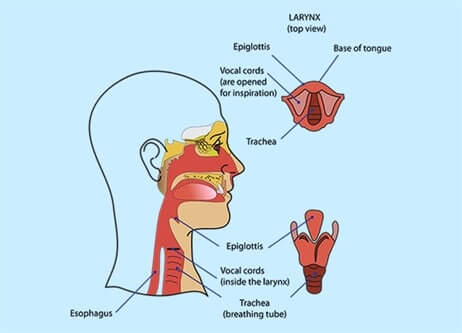
As voice-over actors, our vocal cords regularly get a hearty workout. But the same may not be true for the rest of our bodies. Even if we consistently schedule exercise into our off-work hours, it may not be enough to combat the effects of spending our days in a recording booth.
Whether we sit all day or stand while recording and then sit for editing, we’re still not moving around all that much. While a combination of sitting and standing can be better for you than prolonged bouts of just sitting, the effects of a largely inactive job can still add up.
Detriments of Sedentary Jobs
When we engage in extended, uninterrupted bouts of inactivity, a number of negative biochemical reactions can actually start to occur. Our bodies become less effective at breaking down cholesterol and blood sugar, which increases the risk of strokes, heart attacks, and diabetes.
Being sedentary for extended periods can result in:
- Higher blood sugar levels
- Increased triglycerides, which are fats known for causing disease
- Lower levels of HDL cholesterol
- Increased fatty buildup and calcium in the heart’s arteries
- Increased risk of obesity
- Higher risk of heart disease and cancer
If you switched your extended hours of sitting for prolonged hours of standing, you can end up with an entirely new set of risks. These include:
- Lower back issues from constant compression of the spine
- Deep vein thrombosis, varicose veins, and other cardiovascular problems
- Double the risk of heart disease over people that mostly sit
How to Lower the Health Risks
- Being aware of all the risks gives us great motivation for correcting them, and we have several things we can do.
- Maintain Good Posture: One of the most important is to maintain good posture, whether sitting or standing. We, voice-over artists, tend to maintain good posture when recording, as we know the effects on our delivery if we don’t. But we may still hunch over or slouch when we’re editing or otherwise working at the computer.
- Follow the 20-8-2 Rule: Another recommendation is known as the 20-8-2 rule. For every 20 minutes we spend sitting, it recommends eight minutes of standing and two minutes of gentle movement. Since this may be impossible to keep up based on our recording schedules and deadlines, we can at least get up and move around when we get a few minutes between tasks.
Physical Exercises for Voice over Actors
One more way to help combat the negative effects of inactivity is with exercises specifically designed to work areas that tend to stiffen up throughout the day.
Neck and Shoulder Stretches
- Stretch the sides of your neck by sitting tall and dropping your left ear towards our left shoulder. Keep your shoulder level, making sure you don’t raise it to meet your ear. Hold for five seconds, and then repeat on the right.
- Stretch the back of your neck by dropping your chin toward your chest, then smoothly and gently rolling your head from one side to the other side.
- Stretch your shoulders by shrugging them up towards your ears. Hold for five seconds, then release. Repeat five times.
Upper Body Stretches
- Open your chest by bringing your palms together behind the middle of your back. Sit tall, pressing the palms together and holding for at least five seconds.
- Stretch your sides by extending your left arm over your head, then reaching as far as you can while bending to the right. Hold for several seconds, and then repeat on the other side.
- Do a seated spinal twist by turning your upper body to the right, putting both hands on the arm of your chair. Drop your shoulders and twist to the right, lengthening your spine as you inhale. Look over your right shoulder and hold for at least three seconds. Repeat on the other side.
- Stretch your upper back by intertwining your fingers with your palms facing outward. Reach your palms upward towards the ceiling as you inhale and elongate your spine.
Lower Body Stretches and Exercise
- Do mini squats by standing up from your chair, and then sitting back down 10 times in a row.
- Work your calves by standing up behind your chair, holding the back for support. Start with feet flat on the floor, and then raise your heels as you stand on your toes. Lower back down slowly. Repeat to complete three sets of 10.
- Stretch your glutes by putting your feet flat on the floor while seated, and then lifting your right ankle onto your left knee. Gently press down on your right knee three or four times. Repeat on the other side.
- Stretch your legs with a knee hug. Bend your right knee, and then lift your knee to your chest, wrapping your arms around it to pull it as close to your upper body as you can. Hold for at least five seconds, and then repeat on the left.
- Although we may still spend hours in the recording booth, these tips can help offset the detrimental effects of daylong inactivity. Moving, stretching and exercising throughout the day, even briefly, can also make us feel more energized while bringing on longer-term benefits.
Additional Voiceover Practice Exercises Anyone Can Do
- Tips and tricks are all over the internet. But the practice is how you really make progress. Here are some of my favorite voice over practice exercises anyone can do that will help you get ahead in this competitive industry.
- Nearly every talented person got that way because they went through a process of practicing to develop that skill. And if you enjoy doing something and become great at it, people say it’s a natural gift that you have.
Out Loud and Proud
- To practice voice over skills, get into the habit of reading out loud daily for at least a half-hour to an hour. That is about the average length of a voice-over session.
- You don’t have to narrow it down to just voice over scripts. Read ads and articles from magazines, internet news feeds, books, the ingredients of your toothpaste.
- It doesn’t matter what it is, as long as you are getting the practice in reading out loud.
- The more diverse, the better.
- I also recommend doing this, and many of these other techniques, with someone you trust to give you honest feedback
- Another opinion will help keep your mind open for direction from the many producers and engineers you’ll be facing in the real world.
Forget About What Other People Think
- Yes, I know what I just said about listening to other opinions, but this is different.
- Not exactly an exercise but more of a state of mind to practice being in.
- Do you ever wonder why there are so many videos of voice talent at work on YouTube? For some reason, we are fascinated by it!
- We get to see people becoming somebody else right before our eyes
Actors take their time.
- Taking five minutes to focus on finding the right character before any recording is done will actually speed up a session.
- Rushing into each and every take is only going to lead to more and more frustration and anxiety and make things take much longer
Playback Changes Everything
- Record your practices and play them back. You will hear things in a much different way on playback when you are just listening and not trying to accomplish the perfect read.
- There is a lot to focus on during a take. Listening to yourself reading the same way any consumer would is going to allow you to hear what you could not hear while recording.
Let the Mic Do the Amplifying
- Many voices-over talents think they need to rev themselves up and project more and raise the volume to get more energy. Or when their read is running a few seconds long, they suddenly get louder and frantic.
- If you need to get more energy, try raising your pitch instead of trying to project more or be louder. The louder you get the more breath you will have to take and the longer it will take you to get through the copy.
- More energy through volume does not mean you can read faster.
- This can work really well with some of the hard sell commercial spots where high energy is a staple.
Remember Your Grammar
- Practice stretching your muscles by saying your vowels (A, E, I, O, U-and don’t forget sometimes Y) with exaggerated facial expressions. This is a good practice to do shortly before a session.
- If you are driving to a studio for the session, just ignore the people in the cars next to you at red lights. If it helps, hold your phone up to your ear and they might not find it so odd.
- This exercise will help you loosen up your facial muscles and aid in quickly getting through tough expressions or combinations of words.







